The Human Heart. Here is a quiz about cardiovascular system-related multiple-choice questions on one of the most important organs in the body: the human heart. Enjoy it…Cardiovascular system quiz MCQ for nurses, medical & students, human heart anatomy quiz cardiac questions and answers. Cardiovascular system quiz physiology exam questions and answers about the human heart chambers pdf
Instruments used in gynecology and obstetrics
CARDIOVASCULAR SYSTEM QUIZ
Online Nursing Test Endocrine Quiz
MCQs 1. The first branch of the human aorta is
1) Left subclavian artery
2) Brachiocephalic artery
3) Coronary artery
4) Left common carotid artery
Answer: 3
MCQs 2. hepatic portal system originates from
1) Kidney
2) Diaphragm
3) Liver
4) Different parts of the alimentary canal
Answer: 4
MCQs 3. least blood pressure is present in
1) Aorte
2) Capillary
3) Vein
4) Vena Cava
Answer: 4
MCQs 4. The function of the spleen in adults is
1) Phagocytosis of old RBCs
2) Secretion of hormones
3) Formation of blood
4) Development of macrophage
Answer: 1
MCQs 5. A person has blood group A means he/she has
1) A antigen in RBC
2) An antigen in plasma
3) B antigen in RBC
4) B antigen in plasma
Answer: 1
MCQs 6. A person has blood group B means he/she has
1) A antigen in RBC
2) An antigen in plasma
3) B antigen in RBC
4) B antigen in plasma
Answer : 3
MCQs 7. Extracellular fluids are rich in the following except
1) K+
2) HCO3-
3) Na+
4) Ca2+
Answer: 1
MCQs 8. The velocity of flow in blood vessels is determined by
1) Caliber of blood vessel
2) Viscosity of blood
3) Pressure difference between two ends of blood vessels
4) All listed
Answer: 4
MCQs 9. The left border of the heart is formed by
1) Right ventricle
2) left Atrium
3) Left Atrium and left ventricle
4) Left ventricle
Answer: 3
MCQs 10. Immunoglobulin which crosses Placenta is
1) IgG
2) IgD
3) IgM
4) IgE
Answer: 1
MCQs 11. For blood clotting fibrinogen is changed into fibrin with the help of
1) Thrombin
2) Platelets
3) Vitamin K
4) Antithrombin
Answer: 1
MCQs 12. A blood clot inside a blood vessel is known as
1) Thrombus
2) Fibrinolysis
3) Thrombosis
4) Clot
Answer: 1
Endocrine Quiz For Upcoming Nursing Exams
MCQs 13. The thickest layer in the heart is
1) Endocardium
2) Myocardium
3) Epicardium
4) Pericardium
Answer: 2
MCQs 14. Does not open in the right Atrium
1) Middle cardiac vein
2) Anterior cardiac vein
3) Superior Vena cava
4) Coronary sinus
Answer: 1
Cardiovascular system physiology exam questions and answers pdf
MCQs 15. Albumin is one of the plasma proteins synthesized in
1) Liver
2) Adrenal gland
3) Pancreas
4) Screen
Answer: 1
Cardiovascular System-Related Multiple-Choice Questions
MCQs 16. What is the function of blood platelets
1) Aid in coagulation of blood
2) Ingest bacteria
3) Carry hemoglobin
4) Transport co2
Answer: 1

MCQs 17. The uterine artery is a branch of
1) Common iliac artery
2) External iliac artery
3) Internal iliac artery
4) Descending aorta
Answer: 3
MCQs 18. Which of the following vitamins has the closest relationship with blood
1) A
2) D
3) K
4) E
Answer: 3
MCQs 19. Which of the following is the correct pathway for the propagation of the cardiac impulse
1) AV node – Bundle of His – SA node-Purkinje fibers
2) SA node-Purkinje fibers- AV node- Bundle of His
3) SA node – AV node – Bundle of His – Purkinje fibers
4) Purkinje fibers – AV node – SA node – Bundle of His
Answer: 3
Dr. NTRUHS MSc Nursing Entrance Exam Paper
MCQs 20. Bleeding can be due to all of the following causes except
1) Deficiency of white blood cells
2) Decrease in calcium
3) Thrombocytopenia
4) Deficiency of coagulation factor
Answer: 1
MCQs 21. The hepatic portal system originates from
1) Diaphragm
2) Kidney
3) Liver
4) Different parts alimentary canal
Answer: 4
MCQs 22. The blood in the mammalian heart pumped by the right ventricle passes out of the orifice which is guarded by. MCQ on the cardiovascular system with answers pdf
1) Bicuspid valve
2) Tricuspid valve
3) Aortic arch
4) Pulmonary valve
Answer: 4
MCQs 23. A peptic ulcer is most common in people of blood group
1) A
2) B
3) AB
4) O
Answer: 4
MCQs 24. The splenic artery is a branch of
1) Superior mesenteric artery
2) Renal artery
3) Inferior mesenteric artery
4) Celiac trunk
Answer: 4
MCQs 25. The universal Donor blood group of human beings is
1) B
2) AB
3) O
4) A
Answer: 3
MCQs 26. The following substances are the buffering agents of the human body except
1) Carbohydrate
2) Phosphate
3) Haemoglobin
4) Protein
Answer: 1
Blood MCQs – Questions for Nursing Exam
MCQs 27. The Blood grouping is important for
1) Diagnosis of blood disease
2) Blood transfusion
3) Detection of AIDS
4) Blood donation
Answer: 2
Cardiovascular System Quiz for Medical Students Pdf
MCQs 28. The aorta pierces the diaphragm at the level of
1) T8
2) T12
3) T10
4) C6
Answer: 2
MCQs 29. A patient with a high fever will most likely demonstrate the signs of
1) Decreased sweating
2) Increased pulse rate
3) Increased urinary output
4) Increased appetite
Answer: 2
MCQs 30. Normally cardiac cycle takes … seconds to complete.
1) 0.1
2) 0.01
3) 0.8
4) 0.08
Answer: 3
MCQs 31. Which of the following is responsible for pumping oxygen-rich blood throughout the body?
A) Liver
B) Kidneys
C) Heart
D) Lungs
Answer: C) Heart
MCQs 32. Blood vessels that carry blood away from the heart are called:
A) Veins
B) Arteries
C) Capillaries
D) Venules
Answer: B) Arteries
MCQs 33. Which of the following is NOT a major component of blood?
A) Plasma
B) Red blood cells
C) White blood cells
D) Cartilage
Answer: D) Cartilage
MCQs 34. Which chamber of the heart receives oxygenated blood from the lungs?
A) Left atrium
B) Right atrium
C) Left ventricle
D) Right ventricle
Answer: A) Left atrium
MCQs 35. Is blood returning to the heart from the systemic circulation first enters which chamber?
A) Left atrium
B) Right atrium
C) Left ventricle
D) Right ventricle
Answer: B) Right atrium
Cardiovascular System-Related Multiple-Choice Questions and Answers
MCQs 36. Which of the following is a condition characterized by high blood pressure in the arteries?
A) Hypertension
B) Hypotension
C) Anemia
D) Thrombosis
Answer: A) Hypertension
MCQs 37. The process of blood clot formation is known as:
A) Hemolysis
B) Hemostasis
C) Hemoglobin
D) Hematopoiesis
Answer: B) Hemostasis
MCQs 38. Which blood vessel carries deoxygenated blood from the heart to the lungs?
A) Aorta
B) Pulmonary artery
C) Pulmonary vein
D) Inferior vena cava
Answer: B) Pulmonary artery
MCQs 39. The “pacemaker” of the heart, which initiates the heartbeat, is located in:
A) Left atrium
B) Right atrium
C) Left ventricle
D) Right ventricle
Answer: B) Right atrium
MCQs 40. Which of the following substances is responsible for the clotting of blood?
A) Hemoglobin
B) Fibrinogen
C) Albumin
D) Histamine
Answer: B) Fibrinogen
MCQs 41. Which of the following is a common symptom of a myocardial infarction (heart attack)?
A) Severe headache
B) Shortness of breath
C) Muscle cramps
D) Joint pain
Answer: B) Shortness of breath
MCQs 42. The main function of red blood cells (erythrocytes) in the body is to:
A) Fight infections
B) Transport oxygen
C) Form blood clots
D) Produce antibodies
Answer: B) Transport oxygen
MCQs 43. Which of the following terms refers to the narrowing of blood vessels due to the buildup of fatty deposits?
A) Atherosclerosis
B) Hemorrhage
C) Thrombosis
D) Embolism
Answer: A) Atherosclerosis
MCQs 44. The “lub-dub” sound of the heartbeat is caused by:
A) Opening and closing of the atrioventricular valves
B) Contraction and relaxation of the atria
C) Blood flowing through the pulmonary artery
D) Opening and closing of the semilunar valves
Answer: A) Opening and closing of the atrioventricular valves
MCQs 45. Which of the following is NOT a risk factor for cardiovascular disease?
A) Obesity
B) High cholesterol levels
C) Regular exercise
D) Hypertension
Answer: C) Regular exercise
MCQs 46. The condition where there is a rapid and irregular heartbeat is known as:
A) Bradycardia
B) Tachycardia
C) Aneurysm
D) Arrhythmia
Answer: D) Arrhythmia
MCQs 47. The medical term for a heart attack is:
A) Cardiomyopathy
B) Atrial fibrillation
C) Myocardial infarction
D) Endocarditis
Answer: C) Myocardial infarction
MCQs 48. Which of the following factors can lead to the formation of a blood clot in a deep vein, typically in the leg?
A) Atherosclerosis
B) Varicose veins
C) Deep vein thrombosis (DVT)
D) Aneurysm
Answer: C) Deep vein thrombosis (DVT)
MCQs 49. The innermost layer of the heart’s wall is called the:
A) Endocardium
B) Myocardium
C) Pericardium
D) Epicardium
Answer: A) Endocardium
MCQs 50. Which of the following is a hormone released by the kidneys that regulates blood pressure?
A) Insulin
B) Aldosterone
C) Renin
D) Thyroxine
Answer: C) Renin
Also Read –
Blood MCQs – Questions for Nursing Exam
Dr. NTRUHS MSc Nursing Entrance Exam Paper
Endocrine Quiz For Upcoming Nursing Exams
Post Basic B.sc Nursing Entrance Exam Question Papers pdf
Anatomy and Physiology of the Urinary System
Cardiovascular System-Related Multiple-Choice Questions, Cardiovascular System-Related Multiple-Choice Questions, Cardiovascular System-Related Multiple-Choice Questions, Cardiovascular System-Related Multiple-Choice Questions, Cardiovascular System-Related Multiple-Choice Questions, Cardiovascular System-Related Multiple-Choice Questions, Cardiovascular System-Related Multiple-Choice Questions, Cardiovascular System-Related Multiple-Choice Questions, Cardiovascular System-Related Multiple-Choice Questions
Thanks for reading. if you have any queries please comment below. We will answer your query as fast as we can.
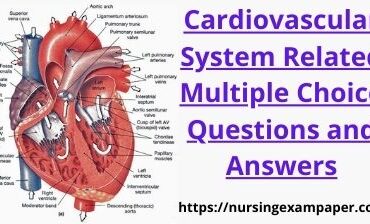

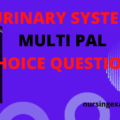
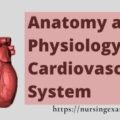
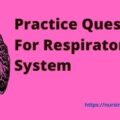

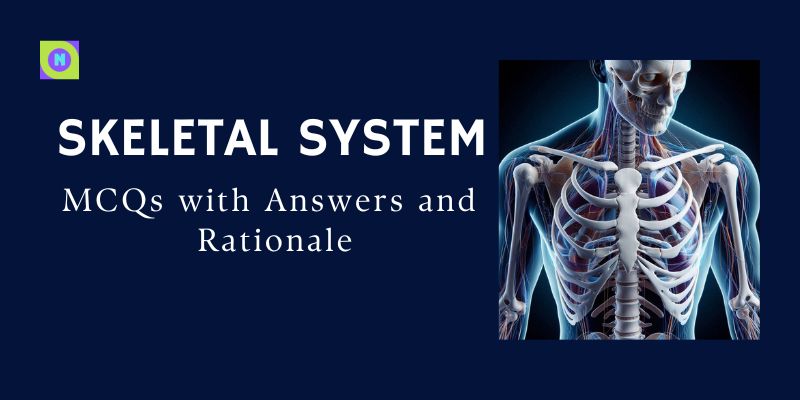
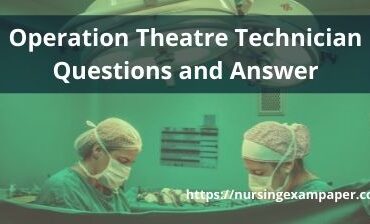
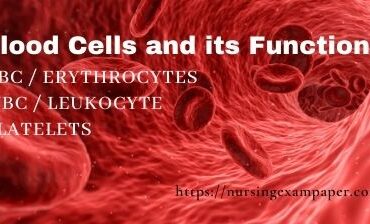

Change the answer of first question
The first branch of the human aorta is Brachiocephalic trunk, so correct ans for question no 1 will be (2) not (3)
Thank you Dear, we respect your suggestion but this is the first branch of the aortic arch, not the aorta.
Good information
Plz make mcqs for dpt 1st smster
Khud parho na 🙂
Cardiovascular system
Nursing Mcqs plzz